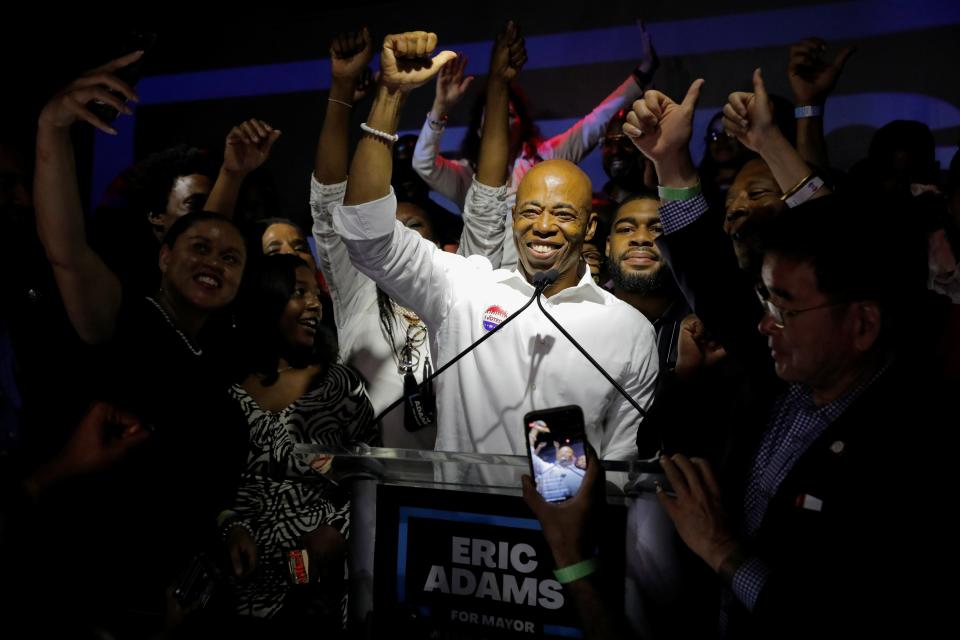Andrew Yang concedes as Eric Adams takes early lead in NYC mayor’s race

Brooklyn borough president and former police officer Eric Adams snagged an early lead but fell short of an outright victory in the Democratic primary for New York City’s next mayor, as voters await the results from the city’s first-ever ranked-choice voting system that could alter the outcome in the weeks ahead.
After tallying ballots from Election Day and early in-person voting ballots, Mr Adams has a nearly 10-point lead, while progressives have coalesced around Maya Wiley, who stands in second place with more than 22 per cent of the vote.
Former presidential candidate Andrew Yang was the first among early front-runners to concede on Tuesday night after he fell to a distant fourth place.
The primary election marks the debut of the city’s first-ever ranked-choice election, in which voters can fill ballots “ranking” their first, second, third, four and fifth choices in order of preference in citywide races.
Without a clear majority win in the first-choice results, the outcome of the race might not be revealed until several weeks later.
Following the results from Election Day, the last-place candidate is eliminated, and their votes are redistributed, a process that will continue through several rounds until only two candidates remain.
Election officials will finish processing ranked picks on 29 June, and it could take up to 12 July – after processing all absentee ballots – to determine the winner.
Mr Adams told supporters at his election night party on Tuesday night that “New York City said our first choice is Eric Adams”.
Ms Wiley, buoyed by late endorsements from prominent progressive lawmakers and the Working Families Party, told supporters that she believes there remains a path to victory as votes are counted.
Curtis Sliwa has won the city’s Republican Party primary, but the largely Democratic-leaning city all but guarantees a Democratic victory in the race.
The Democratic candidate will face Mr Sliwa in the general election on 2 November.
The coronavirus pandemic – which has killed more than 33,000 New York City residents – has underscored the city’s overlapping crises in housing, unemployment, healthcare and education, but public safety became a defining issue in the final weeks of the primary campaign following a spike in violent crime.
Candidates also debated their competing visions for the future of the nation’s largest and most expensive police force after antiracist uprisings and calls to “defund the police” to prioritise critical social services.
While speculators have seen Mr Adams’s early lead as a sign of winnowing left-wing influence across New York politics, progressive candidates saw several victories in citywide races and in other boroughs and in the state’s second-largest city of Buffalo.
Early results from Manhattan’s district attorney show a lead for Alvin Bragg, backed by national progressive groups. Current public advocate and leading New York progressive Jumaane Williams received more than 70 per cent of the vote for his re-election. And Brad Lander, endorsed by Senator Bernie Sanders and New York congresswoman Alexandria Ocasio-Cortez, also is leading the race for the city’s next comptroller. Left-wing candidates in several other city council races, including Tiffany Caban in Queens, also are leading.
In Buffalo, India Walton appears to have defeated the city’s four-term mayor Byron Brown in an upset that could see her become the city’s first-ever Black woman as mayor.
Read More
A last push, then a long wait in NYC mayoral primary
Here’s how ranked choice voting will work in the NYC mayoral primary election
New York’s mayoral candidates are battling for our attention

 money
money 